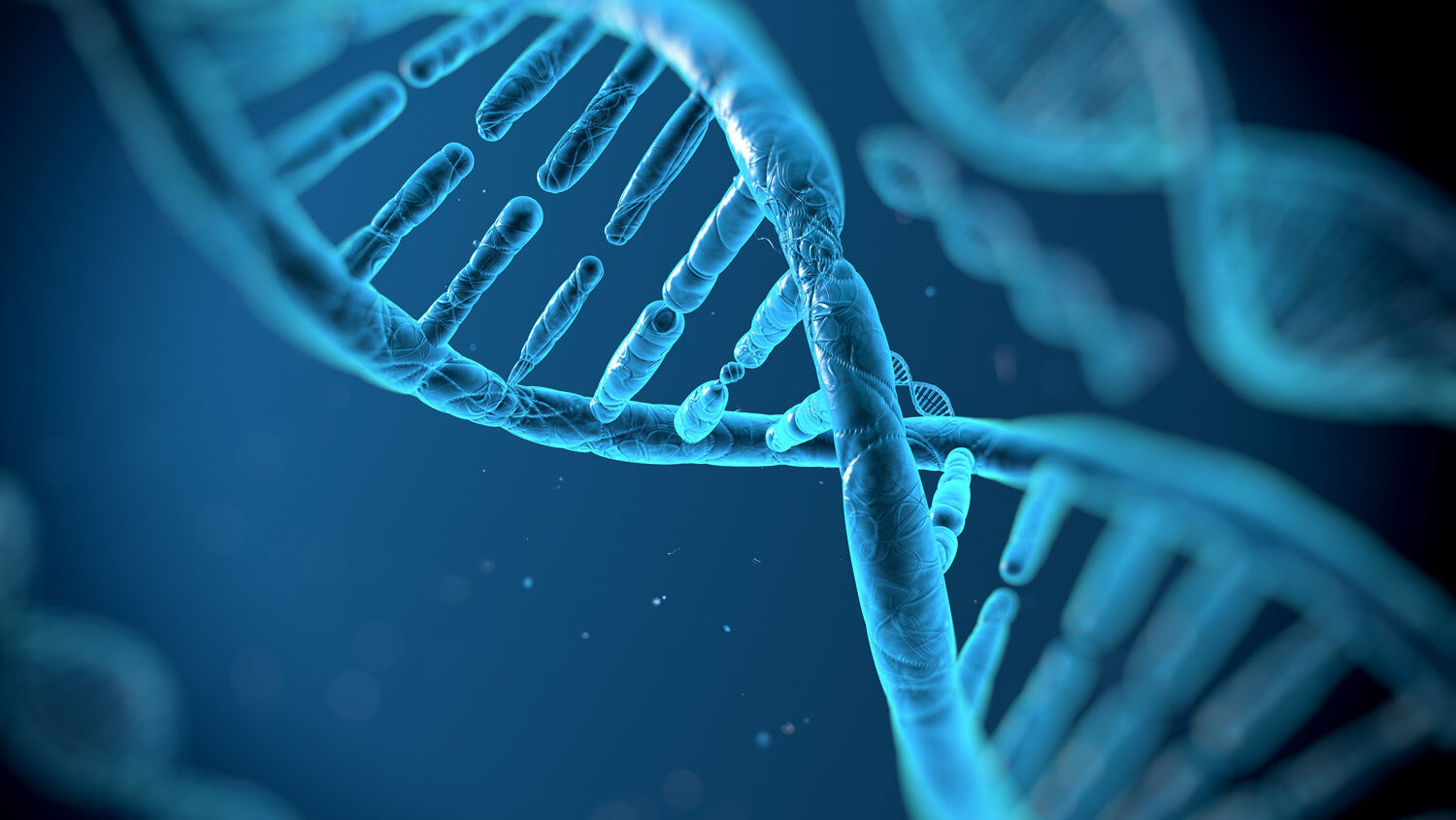
New Study Overturns Myth That Human and Chimpanzee Genomes Are Similar
For decades, the public has been told that humans and chimpanzees are nearly identical genetically. But new research is overturning this myth. According to research published in Nature, the world’s most prestigious science journal, the difference between the human and chimp genomes is 14 times greater than previously claimed.
In 1975, Mary-Claire King and Allan Wilson published a paper claiming human-chimpanzee genetic divergence is only about 1 percent. Since then, millions of biology students have concluded that humans and chimpanzees must have evolved from a common ape-like ancestor. Yet King and Wilson’s paper only compared several proteins in chimpanzees to their equivalent proteins in humans. The technology to sequence whole genomes did not exist at the time.
After the human genome was sequenced in 2003, scientists made sequencing the chimpanzee genome a priority. But they used the already sequenced human genome as a template in their studies. The scaffolding technique they used bolstered the idea that humans are 98.8 percent genetically similar to chimpanzees. Until now.
The new study published in Nature on April 9 provides complete sequences of various ape genomes, including the chimpanzee genome, from scratch. This analysis offers a far more accurate comparison than previous attempts, which relied on human-guided scaffolding. It proves humans and chimps are more different than supposed.
“The actual difference between the human and chimp genomes turns out to be much greater than previously claimed,” said Discovery Institute scientist Dr. Casey Luskin. “Instead of 1 percent, it’s between 14 to 14.9 percent.”
This is a major scientific discovery, as textbooks and museums across the nation hold up the 1 percent claim as an “icon of evolution.” The Smithsonian Institution currently informs visitors, “You and chimpanzees [are] 98.9 percent genetically similar.” Bill “The Science Guy” Nye’s book Undeniable states, “As our understanding of dna has increased, we have come to understand that we share around 99.8 percent of our gene sequence with chimpanzees.”
Luskin is calling on science educators to correct the record, because this new finding makes humanity’s descent from apes an order of magnitude less probable. Since there are 3.2 billion nucleotides (that we know about) in the human genome, a 14 percent difference in genomes between species works out to a difference of 448 million nucleotides.
Previously, scientists estimated that it took 50 to 60 genetic mutations per generation for humans to evolve from an ape-like common ancestor that lived about 240,000 generations ago. Yet bridging a 448 million-nucleotide gap over a similar period would require somewhere between 900 to 1,000 perfectly timed mutations each generation. Such a rapid rate of mutation has never been observed in humans or chimps and would likely be fatal.
These numbers reveal the absurdity of the evolutionary hypothesis.
If you compare a genome to a set of written instructions on how to build a living being, nucleobases are comparable to letters, base pairs to words, genes to chapters, chromosomes to books, and the genome is like an entire library. If you wrote a manual on how to “build” a human being using one letter per nucleobase, it would be 24 times longer than the Encyclopedia Britannica. A mutation would be like an extra letter “a” printed in this gargantuan manual.
Suppose you reprint an encyclopedia with one typo every year: The encyclopedia would not randomly evolve a new chapter on opposable thumbs, no matter how many times it was reprinted. Instead, it would degenerate into a jumble of letters that fails to tell you how to build anything at all. The fact that scientists thought random mutations could bridge a 32 million-nucleotide difference between humans and chimps was always ridiculous, but it is even more ridiculous now that we know that the genetic difference between humans and chimps is probably closer to 448 million nucleotides.
As American zoologist Edwin Conklin said, “The probability of life originating from accident is comparable to the probability of the Unabridged Dictionary resulting from an explosion in a printing factory.” To think the wondrous complexity of even one gene, let alone an entire genome, resulted from undirected mutations defies logic.
It is a principle of entropy that a closed system always tends toward a state of disorder unless maintained by an outside force. The genome of living things is no different. Genetic mutations cause information to be lost, not gained. Therefore, genetic mutations are harmful to an organism. They only explain the presence of varieties less fit to survive. Mutations do not spontaneously create new and better physical traits; they destroy the fine-tuned intricacy of the genes God created.
To learn more, read Does God Exist?, by Herbert W. Armstrong.
